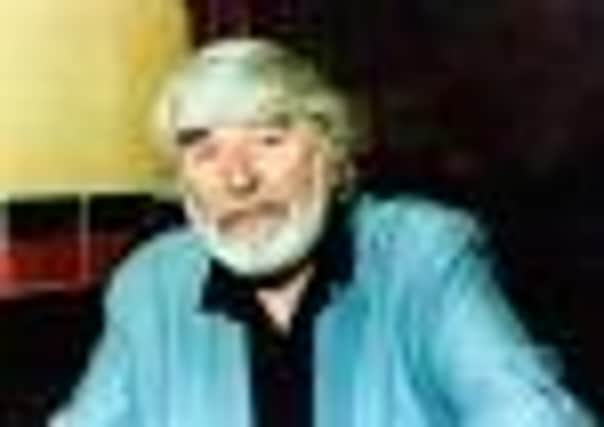Barstow is gone, but there are more with his true grit


There is a notice pinned up on the wall of my local pub.
“I say what I like and I like what I b****y well say”, goes the aphorism.
Is this, possibly, the secret to the Northern Writer?
With the sad news of the passing of Stan Barstow this week, his death provides the opportunity to celebrate this staunchly northern writer and his peers, and get under the skin of what made him and his ilk tick. It also begs the important question, now that the Angry Young Men of the Fifties and Sixties are no longer young, is there a generation behind them?
Advertisement
Hide AdAdvertisement
Hide AdThe motto in my local is perhaps the most immediate response that comes back when you attempt to nail exactly what it is about writers in the North. That ability to write with grit, panache and literary muscle – and never make apology nor take a backward step, characterised writers like Barstow.
The writer’s name will always be inextricably linked to fellow authors like Alan Sillitoe, John Braine, David Storey, Alan Plater and Keith Waterhouse.
Kitchen sink realists all.
Together they cast an unsentimental eye into the corners of British life, eschewing the genteel world of drawing rooms and clubs for factories and pubs.
Previously the only way you understood these lives was if you had lived them.
Advertisement
Hide AdAdvertisement
Hide AdReading about them, watching them on stage or TV or hearing about them on the radio was not an option until these writers came along to shine their spotlights into the darker corners of British working class life in the Fifties and Sixties.
What all these writers had in common, apart from the ability to make formerly seemingly dull lives burn bright with a passion, was that they were all northern. Sillitoe was from Nottingham, but the other contemporaries of Barstow were all hewn from Broad Acres granite.
Sift any of their works and you will come out with hands full of true Yorkshire grit.
Add to this list writers who emerged since the Angry Young Men who came to fore, like Andrea Dunbar, John Godber and Tony Harrison, and the stories of the disenfranchised northern working class have been an important strand in our literary heritage.
Advertisement
Hide AdAdvertisement
Hide AdSteve Dearden, who runs the Writing Squad for emerging writers in Yorkshire and edited Robert Endeacott’s One Northern Soul, says the autodidactic nature of northern working class writers is the key to the uncompromising way Barstow and his contemporaries captured a slice of life that had hitherto been unexplored.
“There is also the fact that these writers looked with envy upon the South and London,” argues Dearden, controversially.
“They were writing about the working class experience, but very much from the point of view of wanting to escape and get to the bright lights. That sense of being trapped within their own situation was something they all shared.”
So what of the inheritors of the mantles of Barstow et al?
Last month, Anthony Clavane made a return visit to his home town of Leeds. The journalist recently won the Sports Book of the Year Award for his debut book Promised Land.
Advertisement
Hide AdAdvertisement
Hide AdClavane explained that his book, while ostensibly about the ups and downs of the football club of his home city, dealt with wider issues, one of which was the literary heritage of the North to which he owes so much.
“Barstow was part of a golden generation of working-class Yorkshire writers. The working-class West Riding voice had rarely been heard in literature.
“Writers like Stan wrote about the kitchen sink, the pub, the factory floor and the football pitch. They made an impact because their world had not been on the literary radar before. There was a cultural revolution which allowed previously unfashionable regions to come to the fore.
“Barstow, like Braine and Waterhouse, wrote about grabbing the new opportunities – but also about the price to be paid for ambition – which was loss of identity. Storey wrote an essay in 1963 in The Listener arguing there was an insularity particular to the West Riding pysche, but he and his fellow kitchen-sink novelists transcended that insularity and helped create a cultural ‘moment’, with its own northern, and particularly Yorkshire, vernacular, that opened the doors for future generations.”
Advertisement
Hide AdAdvertisement
Hide AdThose future generations today include Clavane, David Peace, Wes Brown, Ross Raisin – and it would appear that the penchant for saying what they like – the inheritance of Barstow and his contemporaries – has a healthy future among Northern writers.